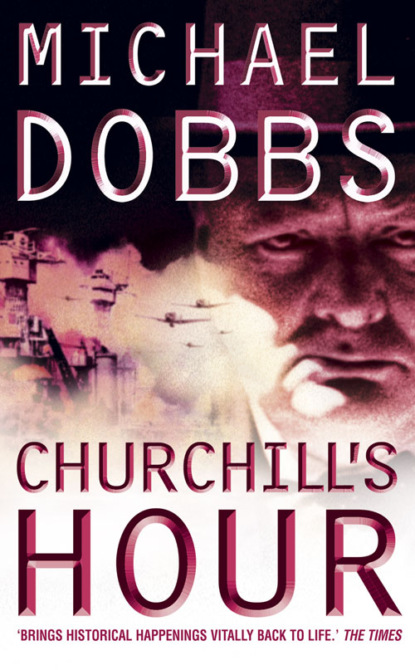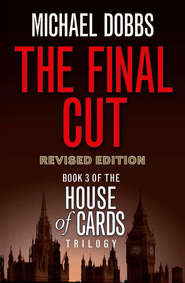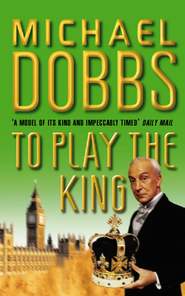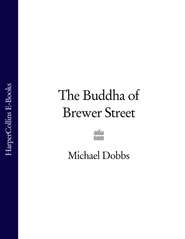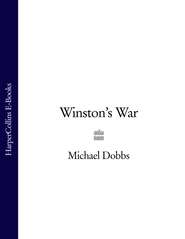По всем вопросам обращайтесь на: info@litportal.ru
(©) 2003-2025.
✖
Churchill’s Hour
Автор
Год написания книги
2019
Настройки чтения
Размер шрифта
Высота строк
Поля
‘Not alone. With others.’
‘What others?’
‘The Americans, of course.’
‘The Americans?’
‘They have already taken the first step. President Roosevelt has declared that his country will become the great arsenal of democracy.’
‘Hah! He got that almost right,’ Randolph said, his tone mocking.
‘He’s agreed to lease and lend us all the materials we need,’ his father responded forcefully.
‘So that we can scrabble around as her mercenaries?’
‘It is an act of unprecedented generosity.’
‘Or unprincipled calculation! The Americans sit back and make their profits while we fight their war. The only time they ever come into a war is when it’s all but bloody over. Then they’ll crawl out from their bunkers in time to pick the pockets of the wounded.’
‘The Americans will join us! Not just as supporters and suppliers but as combatants, too. They will join with us. That I promise you.’
‘Papa, what strange world are you living in? You know what Roosevelt has said, time and again. Fight to the last Briton!’
‘Oh, but you are cruel. The President has had to act cautiously.’
‘What? You mean he’s had to keep his clothes on! He won’t step into the showers with us and he daren’t look the American voters in the eye.’
Their voices were rising once again.
‘Statesmen practise the art of the possible, Randolph.’
‘Roosevelt has the moral compass of a piece of driftwood!’
‘Such things take time.’
‘And precisely how much time do you think we have, Papa?’
‘That may well depend upon what you and your brother officers achieve in the Middle East.’
‘Then I’d better get out there,’ Randolph snapped, turning away, carried along relentlessly by his addiction to argument.
‘My boy!’ Winston called, despairing. ‘Not—like this. Not to war.’ Tears began to puddle in his eyes. ‘You know I love you.’
The words stopped Randolph in mid-stride. Slowly he turned back, and his father rushed to embrace him.
‘I’m sorry, Papa,’ Randolph sighed. ‘I fear I’m not good company at the moment. Been trying to sort out my affairs before I go, but…You know these things. So silly when you set them against war and what’s happening.’
‘You have troubles?’
He shrugged. ‘A few bills I’d completely forgotten about.’
Ah, that again. ‘How much?’ the old man asked jadedly.
‘Just a couple of hundred.’ He was unable to return his father’s steady gaze. ‘Not going to happen again, I promise you—promised Pam—I’ve given up gambling. Washed my hands of it. Mug’s game. No bloody good at it, anyway.’ He tried to make light of it—just as he had done last time.
‘I shall write you another cheque.’
‘That…would be splendid, Papa. For Pam. Mean a lot to her. And allow me to go off with a clear conscience.’
‘I shall hold you to your promise.’
But Randolph was already brighter, his confidence returning. ‘And I shall hold you to yours. Drag America into this war, and I swear—on my life as a soldier, Papa—I’ll never gamble another brass farthing.’
Churchill’s blue eyes were fixed on his son, trying to tie him to the spot, not wanting him to leave, knowing this moment might be their last. ‘May God give me enough time,’ he said softly. ‘Little by little, step by step, they will be drawn to the fight. They must. Otherwise all this suffering, all the sacrifice, the lives that have been given up…’—he faltered slightly—‘and those that are yet to be given up will have been in vain.’
‘I must go, Papa. I have a job to do.’
‘And so have I.’
‘We have an understanding?’
‘I give you my word.’
Once more Randolph threw himself into his father’s arms, then he was gone, with his father’s tears fresh upon his cheeks.
Churchill watched him go. For a long time he stood on the spot, reaching out after his son’s shadow, clinging to the echo of his words, wondering if they would ever see each other again. Then he whispered.
‘Not today, Randolph, not tomorrow perhaps, but they will come. Before it is too late. I promise you.’
The rocket was one of Churchill’s ‘little toys’. He was fond of his toys. He had set up a specialist group of boffins and pyromaniacs to produce them—‘any new weapon, tool or war-thing that might assist us in the task of smashing the enemy to smithereens,’ as he had put it. The official designation of the group was MD1, but to most it was known simply as the ‘Singed Eyebrow Squad’.
This morning they were testing a small rocket, no more than three feet in height. What the precise purpose of the weapon was to be, no one was entirely sure; the purpose would come later, after the principle had been proven. Churchill had gathered an unusually large group for the weekend; not only family and personal aides, but two Americans and an assortment of braid from all three services, with a couple of Ministers thrown in for ballast. After breakfast they had gathered on Beacon Hill overlooking Chequers, wrapped in overcoats and scarves against the chill February air, the low sun casting long shadows while an inspection party of crows flew languidly overhead. Those responsible for the day’s matinée scurried like grave-snatchers through the mist in the pasture below, while Sawyers weaved his way through the entourage on the hilltop dispensing coffee and shots of whisky.
‘Faster, man,’ Churchill encouraged, ‘or we’ll all freeze.’
‘If we’re going to invite a three-ring circus every weekend, we’ll be needing more hands to help.’
‘What? Are you saying you can’t cope?’
‘I can. Boiler can’t.’
‘What the hell’s the boiler got to do with winning the war?’
‘Do yer know where Mr Hopkins goes to read his papers?’
Churchill began to growl, his breath condensing in the slow-warming air and giving him the impression of an elderly dragon. It was bluff, and Sawyers knew it.
‘He goes to the bathroom,’ the servant continued.





